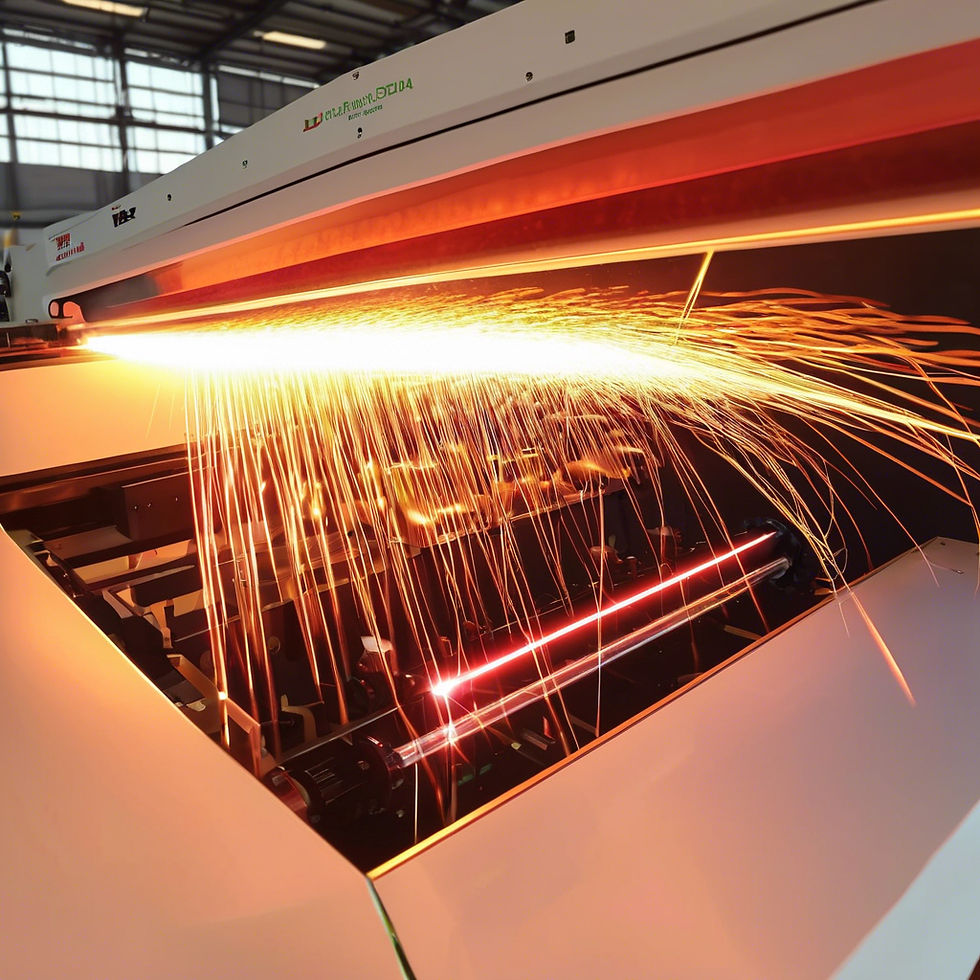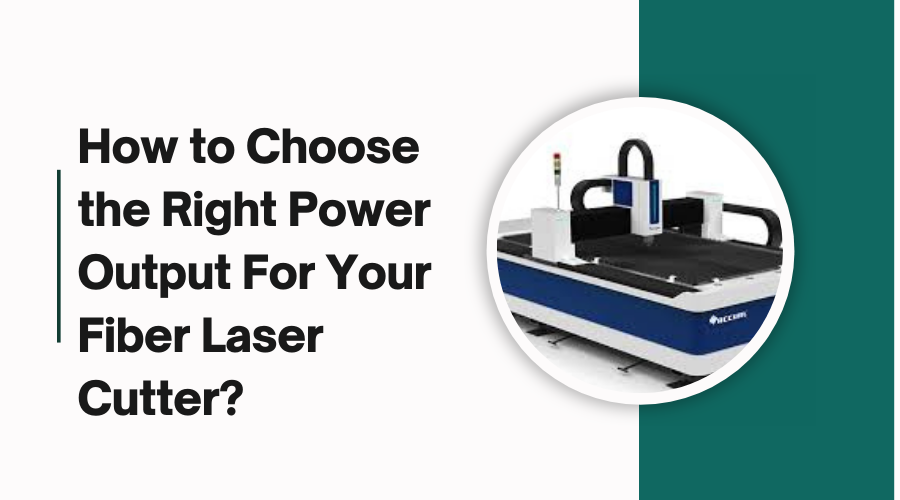Choosing an Industrial Laser Machine Supplier: What Industries Should Prioritize?
- jinanhengcheng
- Apr 17
- 5 min read

In today’s high-precision manufacturing landscape, industrial laser machines have become indispensable tools across various industries. Whether it’s for cutting, engraving, welding, or marking, these machines offer unmatched speed, accuracy, and consistency. However, the quality and reliability of these outcomes significantly depend on the supplier you choose. Selecting the right industrial laser machine supplier isn’t just a procurement decision—it’s a strategic move that can impact your entire production line, cost-efficiency, and product quality. For industries relying heavily on metalworking and fabrication, choosing the right supplier can be the difference between operational success and costly downtimes. This blog explores the key factors that various industries must prioritize when selecting an industrial laser machine supplier.
Understanding the Role of Industrial Laser Machines in Modern Manufacturing
Before diving into the selection process, it's important to understand the pivotal role industrial laser machines play in today’s manufacturing ecosystem. These machines utilize concentrated beams of light to perform tasks such as cutting through metals, plastics, and composites with extreme precision. Unlike traditional cutting methods, lasers minimize material waste, reduce contamination, and offer a clean finish, which is critical in high-end manufacturing sectors. The versatility of laser machines also means they are used across a wide range of industries, from automotive and aerospace to electronics and medical device production.
Automotive Industry’s Emphasis on Precision and Throughput
The automotive industry is one of the biggest adopters of laser cutting and welding technologies. Manufacturers in this sector often deal with high-volume production and require machines that can maintain speed without compromising on quality. When choosing a supplier, automotive companies should prioritize those who offer high-powered machines capable of multi-shift operations. Additionally, the supplier must have a proven track record in handling diverse materials such as aluminum, stainless steel, and advanced high-strength steel. The ability to integrate the machine into automated production lines is another key factor that automotive manufacturers must consider when choosing a supplier.
Aerospace Industry’s Focus on Reliability and Compliance
In aerospace manufacturing, the stakes are much higher. Every component must meet strict regulatory standards for safety and performance. Industrial laser machines used in this industry must offer micron-level precision and be capable of working with specialty metals such as titanium and Inconel. Aerospace manufacturers should look for suppliers who can provide extensive documentation, including material certifications and machine calibration reports. Moreover, a reliable supplier must have a dedicated support team to ensure machine uptime, given that production delays in aerospace can be extremely costly.
Medical Device Manufacturers Need Hygiene and Micro-Precision
The medical device industry requires laser machines that can operate in cleanroom environments and deliver micro-level precision. From surgical instruments to implantable devices, every product must meet stringent hygienic and functional standards. When selecting a supplier, companies in this sector should focus on those who specialize in micro-laser cutting and marking. Suppliers should also demonstrate a commitment to quality assurance protocols and regulatory compliance such as ISO 13485. Additionally, after-sales service and quick part replacement are critical factors, given the sensitivity of the products involved.
Electronics Industry Requires Fine Detailing and Non-Contact Processing
Electronics manufacturing often involves cutting or marking delicate components, including circuit boards, microchips, and flexible PCBs. These processes demand non-contact laser technology to avoid damaging sensitive materials. Therefore, suppliers offering UV or fiber lasers with highly focused beams are ideal for such applications. Electronics companies should prioritize suppliers who can provide machines that support high-speed operation while maintaining extreme accuracy. Another essential consideration is the machine’s compatibility with automation systems to streamline large-scale production.
Metal Fabrication Industry Demands Versatility and Cost Efficiency
Metal fabrication shops cater to various clients across sectors and often require flexible solutions that can handle multiple types of metals and thicknesses. For this industry, the ability to switch between different cutting modes and materials is essential. When choosing a supplier, metal fabricators should focus on those offering versatile machines equipped with user-friendly software, automatic material handling systems, and multi-functional capabilities. Cost efficiency also plays a significant role, so suppliers who offer energy-efficient machines and low-maintenance designs should be prioritized.
Construction and Infrastructure Industry Looks for Durability and Scalability
In construction and infrastructure development, laser cutting machines are used for manufacturing structural components, metal frameworks, and custom parts. These applications typically require machines that can handle large-format sheets and thick materials. Suppliers catering to this industry should be able to provide robust and scalable machines that are capable of operating in rugged environments. Additionally, the ability to scale up operations with minimal upgrades is a valuable advantage that leading suppliers can offer. Construction firms should also consider the supplier’s reputation for providing long-term support and training for new operators.
Renewable Energy Sector Needs Innovation and Material Compatibility
The renewable energy sector, especially wind and solar power, relies on laser cutting for creating precision components such as turbine blades, mounting systems, and photovoltaic panels. These materials can range from thin aluminum sheets to reinforced composite structures. Companies in this field must seek out suppliers who are at the forefront of laser innovation, particularly in terms of energy efficiency and sustainability. Suppliers should also offer machines that are compatible with a wide range of renewable-friendly materials. Responsive customer service and a strong global presence are additional traits that industries in this sector should prioritize.
Evaluating Supplier Capabilities in Technical Support and Training
No matter the industry, the ability of a supplier to provide comprehensive technical support is a cornerstone of long-term success. Industrial laser machines are complex systems that require ongoing maintenance and occasional troubleshooting. Businesses should assess whether the supplier offers in-depth training programs for machine operators and maintenance teams. This not only reduces downtime but also enhances the productivity of the workforce. Suppliers with local service centers or remote diagnostics tools can provide a competitive edge by minimizing machine downtime.
Assessing the Supplier’s Research and Development Efforts
A forward-thinking supplier should have a strong emphasis on research and development. Industries evolve rapidly, and so do the demands placed on manufacturing equipment. Suppliers who invest in R&D are more likely to offer cutting-edge solutions that align with future industry trends. This could include advancements in AI-driven automation, IoT integration, and environmentally-friendly technology. When choosing a supplier, businesses should inquire about the supplier’s latest innovations and how these developments can benefit their production processes.
Checking for Certifications, Testimonials, and Global Reach
Certifications such as ISO 9001 or CE marking provide assurance about the quality and safety standards followed by the supplier. Industries that are bound by regulatory compliance should always work with certified suppliers. Testimonials from previous clients also provide valuable insights into the supplier’s reliability and product performance. Global reach is another crucial factor, particularly for businesses with international operations. A supplier with a wide network can offer consistent support and quick delivery of replacement parts, no matter where the machine is installed.
The Financial Aspect: Balancing Cost with Long-Term Value
While upfront cost is a significant factor, businesses must take a long-term view when investing in industrial laser machines. Suppliers who offer robust, energy-efficient machines may have higher initial costs but often lead to better returns on investment due to lower operational expenses and reduced downtime. Flexible financing options, warranties, and service contracts can further sweeten the deal. It is essential to balance affordability with the machine’s long-term capabilities, and this evaluation should be tailored to the specific needs of the industry in question.
Conclusion
Choosing the right industrial laser machine supplier is a critical decision that varies depending on the unique demands of each industry. Whether it’s the need for high-volume precision in automotive manufacturing or micro-detailing in electronics, every sector must prioritize specific factors when evaluating potential suppliers. From technical support and machine versatility to compliance certifications and long-term innovation, the supplier’s capabilities must align with the strategic goals of the business. By thoroughly assessing the supplier’s expertise, support infrastructure, and commitment to quality, industries can make informed decisions that drive efficiency, productivity, and growth in an increasingly competitive global marketplace.



Commentaires